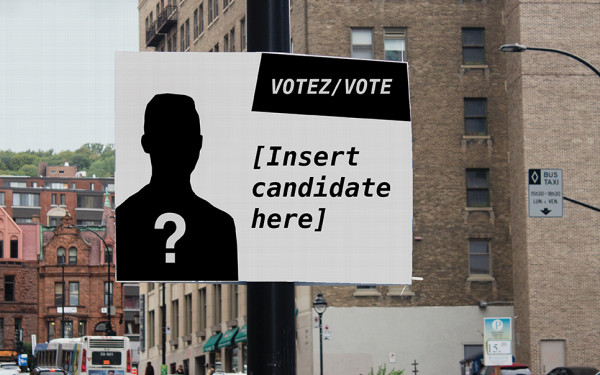Elizabeth May Launches Memoir/Manifesto Hybrid at McGill
Green Party Leader Discusses New Book at McGill
Despite being the sole Member of Parliament elected from the Green Party in Canada—Bruce Hyer crossed the floor from the NDP last year—Elizabeth May hopes her party will be able to hold the balance of power after the October general election if no one party wins an outright majority.
The party leader read from and spoke about her new book, Who We Are: Reflections on My Life and Canada, last Saturday at McGill.
“I really wanted to write a policy book where my last book […] left off,” she told The Link. “It ended up becoming a hybrid of both my own experiences and policy.”
The book is both a memoir and a manifesto. It differs from other political books as it was never read by anyone in the Green Party—besides herself, she hastened to add—until its publication, thus avoiding the usual party screening process.
“Canada seems to have lost its sense of self,” read the book’s opening lines. “In the last number of years, the sense of who we thought we were has been shaken. We need to take stock and commit to being the best we are capable of being.”
May said the book covers “how you can make economics work for a healthy society.”
The book poses two fundamental questions: how to “rescue our democracy from Harper’s greater centralization,” and how to “use the tools of a healthy democracy to avoid catastrophic climate impacts.”
The 2015 general election will be fought over 338 seats—changed from 308—for the first time, which would require any one party to hold 170 seats in the House of Commons for a majority. Therefore, if the Liberal Party were to win 160 seats and the Greens were to win 10 seats, they would be able to form a majority government together.
If the Greens hold the balance of power after the next election then it is these issues—the reform of the voting system and a far greater commitment to sustainable energies—that would have to be in any coalition agreement the Green Party would support.
She implored the audience to “write to your Liberal and NDP leaders and suggest cooperating with Greens,” and that they write their MP to lobby for her inclusion in the federal debates next year.
“Greens are in coalition governments around the world,” she told The Link. “Åsa Romson, in her role as Vice Prime Minister of Sweden, is pushing hard for the European Union to put greater emphasis on green issues.
“This would be extremely doable in Canada too.”
Although she stressed that Who We Are is an “optimistic book,” her analysis of Harper’s concentration of power since his election raised issues that inspire pessimism.
“Climate is a recurring theme,” she told the audience at McGill. “We have flirted with the creativity of our creator. I love us, and I will not accept that we, homo-sapiens, are pathologically committed to stupidity.”
Her book reads, “In some ways, Stephen Harper may have done us a favour. We have been knocked out of complacency as he held up a mirror to our collective face, and taunted us with ‘this is what you really look like.”
May was damning in her critique of first-past-the-post—the majoritarian voting scheme that encourages the two-party system characteristic of Westminster-style parliaments.
The first-past-the-post system is a “key reason Canadians vote less than in other countries,” May told The Link. “It encourages parties close to each other on the ideological spectrum to viciously attack each other.”
She added that “getting rid of first-past-the-post is essential to getting our democracy back.”
“The beginning of the erosion of Westminster democracy goes back to Trudeau’s conception of the Prime Minister’s office,” she said. “The Prime Minister’s office now screens all ministerial speeches; MPs follow orders and hope their constituents forgive them.”
The Westminster system is an “easy popsicle stand to kick over if you’re ruthless,” she noted, alluding to Lord Hailsham’s notion of elective dictatorship which first-past-the-post can facilitate through the landslide effect.
“Change is possible even under a dysfunctional voting system,” she added.
A question period followed May’s speech at McGill. The first audience member to speak stressed that “Harper and his fascist government prance around the world like pimps serving the interests of corporations.”
Video by Mattha Busby



_600_375_90_s_c1.jpg)


